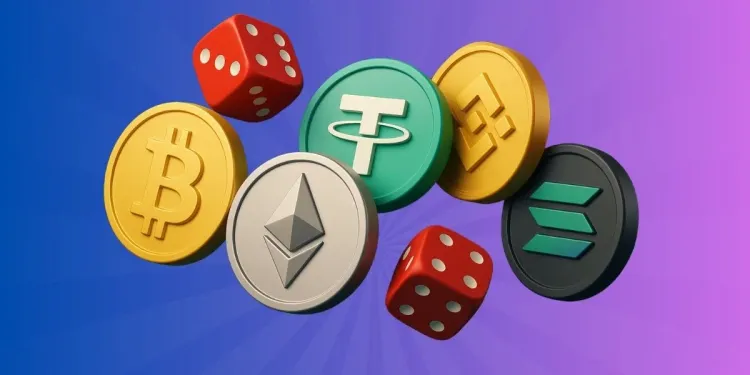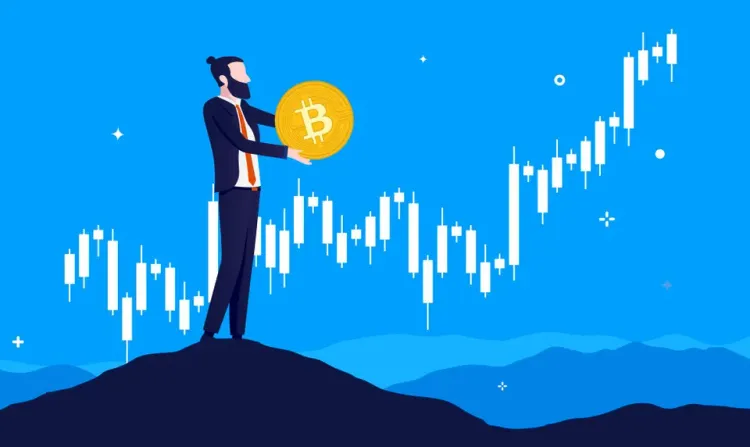Spot Bitcoin ETFs: A Beginners' Guide to these New Products

Bitcoin has come a long way from an obscure digital wallet project initially designed as a medium of exchange to a global phenomenon. As the first crypto, Bitcoin now boasts over $1 trillion in market capitalization and paved the way for creating a new asset class. Bitcoin has achieved another milestone this year: the SEC approved 11 spot Bitcoin ETFs in January 2024, making this crypto more accessible to investors. So what are spot Bitcoin ETFs, and how does the approval of the spot Bitcoin ETFs help popularize this asset class?
A look at the Exchange-Traded Funds or ETF
An exchange-traded fund or ETF is a pooled investment security you can buy and sell like a common stock. Although it shares some similarities with mutual funds, ETFs can be traded during the market opening, while mutual funds are traded once after the market closes.
The ETFs can be structured to track anything, like the price of a commodity or other securities. In some cases, the ETFs can track specific investment strategies. ETF's share prices fluctuate all day since these are bought and sold. Today, different types of ETFs are available in the market, including the bond ETFs, stock ETFs, and the commodity ETFs.
Stock ETFs comprise stocks often marketed and traded for long-term growth. Commodity ETFs track the prices of raw goods such as gold, coffee, and crude oil. These types of ETFs bundle these commodities into one investment. Knowing what you're buying is essential if you're investing in commodity ETFs. Do you have ownership of the fund's inventory of the commodity, or do you own equity in companies that transport or store these commodities? Does it include futures contracts?
ETF bonds are also popular among many conservative investors since they don't carry a maturity date, so their main benefit is generating regular cash payments to the investors. Bond ETFs are low-risk and safe investment options compared to stock ETFs.
SEC approves spot Bitcoin ETFs

On January 10th, 2024, the SEC released a statement approving the spot Bitcoin exchange-traded products. The SEC's decision was widely anticipated and early awaited, with many observers calling it a 'watershed moment' for the crypto industry.
Bitcoin and crypto have struggled to find mainstream US support for years. Traditionally, the US is less welcoming to this new asset class, and SEC Chair Gary Gensler is seen as a critic of digital currencies. So, approving 11 new spot Bitcoin ETFs serves as a vote of confidence for the industry.
The spot Bitcoin ETF is an exchange-traded fund that tracks the current price of Bitcoin. This investment product allows the investor to gain direct exposure to the cryptocurrency without holding it. Here, the underlying assets are Bitcoins and not Bitcoin futures contracts.
A spot Bitcoin ETF is managed by an investment firm that issues shares of the BTC holdings bought through the other holders or a crypto exchange. These shares are listed and open for trading on a traditional stock exchange. Considering how difficult it is to buy, hold, and sell cryptos, a spot Bitcoin ETF offers an easy way to gain exposure in this fast-growing asset class. When you buy a share of the sport Bitcoin ETF, you gain exposure to Bitcoin's price without having to hold the asset and worry about the security of your wallet.
Spot Bitcoin ETFs-How it works and its pros
Read on if you're planning to invest or just curious about how it works.
Investment companies buy Bitcoins held in a secure wallet by a custodian that uses a secure vault. These custodians store Bitcoin in a secure vault that's air-gapped in cold storage. This means that the keys for Bitcoins are stored offline and cannot be accessed or hacked online. The ETF company then issues shares representing the coins the fund holds. These ETF shares are priced to track the spot or current Bitcoin price and can be traded like common stocks in a stock exchange.
As mentioned, there are benefits to buying, owning, and trading these new ETFs. Here's a summary of the pros:
- This asset class has become more accessible to investors, especially retail traders. There's no need to go through the complicated processes traditionally associated with Bitcoin, like setting up a wallet, creating an account in a crypto exchange, and worrying about its storage and security.
- The SEC's approval of spot ETHs validated Bitcoin's standing as an asset class. Different investors, including retail traders, can now gain exposure to Bitcoin without worrying about its complexities or the need for huge funds.
- This will add more liquidity to the market. The approval of the spot ETFs can potentially increase the demand for Bitcoin and, by extension, its liquidity. With more liquidity, prices are expected to stabilize.
- Boosts prices. A spot Bitcoin ETF does not directly impact Bitcoin's price, but increased demand can push it up.
- Lower trading fees. In addition to being easy to access, spot Bitcoin ETFs are attractive to retail consumers due to their lower trading fees.
Check of the risks of investing in spot Bitcoin ETFs
Like all forms of investment, spot Bitcoin ETFs have some inherent risks. Investors, especially beginners, must understand their features and risks before allocating funds to one. Experienced traders and financial advisors suggest that new investors approach this asset class cautiously and look at historical price movements to ensure they are ready to face high volatility. Prices can spike and drastically fall within minutes, and beginners who can't stomach these price movements may lose more in this investment.
It's also essential to recognize the role of regulation in this asset class. Spot Bitcoin ETFs are highly regulated, and these digital coins are currently the talk of the investing crowd. Any regulatory actions against Bitcoin or simple policy pronouncements from politicians and organizations could also affect Bitcoin and the ETFs.
Also, you're not taking any Bitcoin when buying shares of a spot Bitcoin ETF, say the ARK 21Shares Bitcoin ETF. Although it exposes you to BTC, you can't take custody of this asset. You're trusting a third-party custodian, Cathie Wood's ARK21Shares, to hold your Bitcoin. Remember this popular industry line: not your keys or your Bitcoin.
Finally, there are costs involved in buying ETF shares, and we're not just talking about the price per share. There are also annual fees involved in trading spot ETFs. If you're interested in trading these spot ETFs, you should practice due diligence, survey the firms that offer these products, and review their current fee structure, specifically the expense ratio. The expense ratio is the amount the company charges to investors to manage the portfolio, like the spot Bitcoin ETFs. It represents the management fees and operating costs of the funds.
Curently, Greyscale is one of the leading options, but charges 1.50%. Blackrock's iShares Bitcoin Trust (IBIT), the industry's fastest-growing fund, charges 0.25%.




